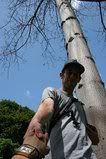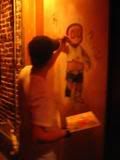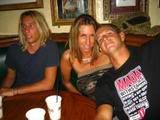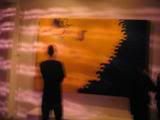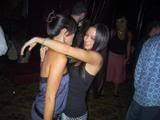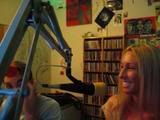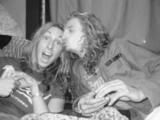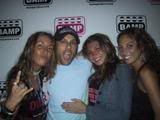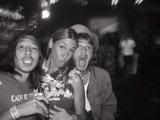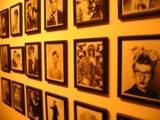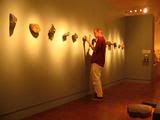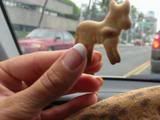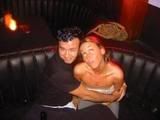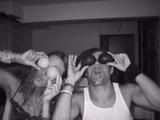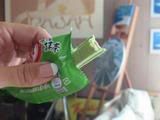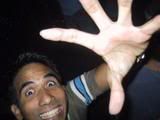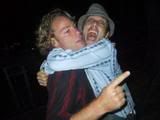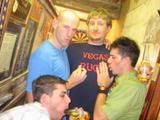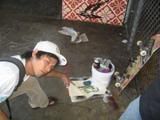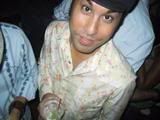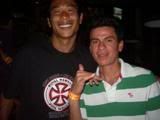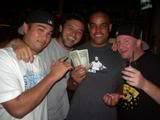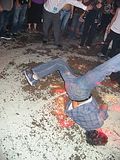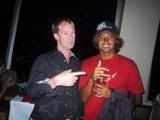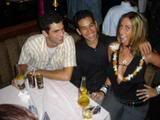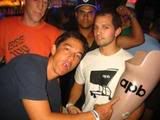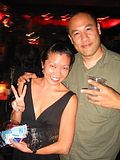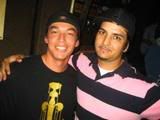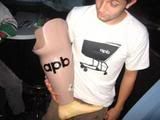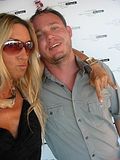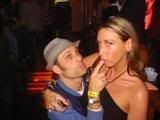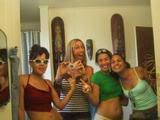What Chan Parker....

...had to say in 1998:
Chan Parker
Location: France
Date: May, 1998
Tell me your first impression of Charlie Parker.
Ah... well, I had, I had knowledge of his reputation. I’d been waiting for him
since Don Bias left the band at, and at the, not the Three Dueces, The Onyx.
And they said, “Oh, this little cat from Kansas is coming.” So, I’d been
waiting, but Bird didn’t show up. And when he finally showed up, somebody
brought him to my apartment at Seven West Fifty-second Street, and I was
on a high ladder painting my high ceiling and there was Bird at my feet, and
I was very young.
What drew you to him? What was attractive about him?
I, he was, he was irresistible. I mean, men, women, nobody would say ‘no’ to
Bird. He had a life force, an incredible life force and he dominated
everything, music... He knew, he knew how to meet somebody and if he
didn’t like them, with a smile, he could put them down, you know. He just,
he was, I couldn’t resist. (Laugh)
Tell me about the 52nd Street scene.
(Laughs) Fifty-second Street was one of the grand moments of my life and I
just lucked up an apartment there and there were all these clubs. Well, every
night, because they had two bands a night in each club. So, during
intermission the guys used to come to my apartment or we’d walk down the
street and smoke a little and, and then I'd go back and hear the next set.
Every night, I heard music there. It was gorgeous for me.
What was Charlie Parker‘s special gift?
In what way?
His musical gift, his human gift. What distinguished this man?
Bird was a giant. He was a giant. He was above all other facets of men that I
had ever known. He was, had a maturity beyond his years. In fact, he said to
me one day, “I’m not one of those boys you’re used to.” And I went “Oooo!”
(laughs) He had, he had a command.
Let’s talk about drugs. What drew him into drugs?
Bird was turned on when he was 15. And had a habit right after. And he was
on it many, many years. In fact, when I first met him, he still had a habit,
and he tried to kick many times while he was with me. Sometimes very
successfully. But he told me once, you know, you can get it out of your body
but you can’t get it out of your brain.
How did you deal with the addiction?
He never let it, Bird never let it touch me. He never shot up in front of me.
He kept it completely away from me, and I never had any desire to
experiment, thank God.
But it was a tempestuous relationship...?
It wasn’t a tempestuous life with Bird because he was my protector. And he
always had me on a pedestal away from... He used to say, “That’s dirty
outside. You don’t want to know about it.” And it never entered our house.
And when Bird was home he was loving and protective and sweet and a good
father and adored our animals and... It didn’t, it, believe me. It’s hard to
believe this but he never, he never brought any of that into our house, and I
had no... I would worry about him, of course.
How hard is it to be the white woman of a black man in NYC in the
40s and 50s?
It was tough to be a mixed couple. But you know, it never bothered me. I’ve
been an outlaw all my life. I was half Jewish in Westchester County, you
know? I stood up for civil rights when there weren’t any civil rights. I just, I
didn’t care. I really, it didn’t let, it didn’t touch me at all.
What would happen?
Well, look, people would look at us funny on the street or, and Bird carried
himself so proudly, and I knew he was there by my side, and I carried myself
that way. So, it never really, I never allowed it to touch me. In fact, I
hesitated to live with Bird because of my daughter who was five at the time.
And being brought up by a black man, in those days, and I worried about
that. And she tells me now, you know, children are colorblind, and she tells
me, “No. I used to vomit every morning before I went to school; I hated it,
and the first morning that Bird took me by the hand to school, I had no
problem.” And she adores Bird.
I have this sense of him being both strong and fragile.
You know, as, I know Bird was strong. I never saw him as fragile. I never
saw any fragility in Bird at all. I don't think he was fragile.
In your memoir, you describe some periods where he moves away
and he seems to be in trouble...?
Well, towards the end, you know, he was he was suffering. He had bleeding
ulcers; he had many medical problems. But that didn't make him fragile as a
person. I think Bird always had the strength to carry on, as I do. I think I'm
strong and I don't think I, I'm not fragile at all, so I don't think that...
That works. Why did he go back to drugs?
Back to drugs? When?
You said that he would go off, be successful and he'd be pulled
back...?
Well, you don't, as I said, as Bird said, you can get it out of your blood, but
you can't, they can't get it out of your mind. So, I think that he was
constantly hounded by drug dealers, you know. So, if there was a fix out
there, maybe he was tempted to do it. But I don't think that had anything to
do with fragility. I think...
I'm done with the fragility thing. People always bring together the
drugs and the music, as if they're one and the same.
Oh. Do you know the highest incident of drug use is among doctors? (laughs)
And how about the highest suicide rate among dentists? I don't think that
correlates. Of course, the temptation is there for jazz musicians, because
there's always somebody there to say, "Hey, man, try this," you know. But I
don't think there's a correlation between jazz and drugs. I've been involved
in jazz all my life and I've never had any desire to use drugs.
How bad was his health back then? I understand you had, did some
shock treatment?
No. When Bird tried his suicide attempt, which was, no. He, was trying to get
out of breaking a Birdland concert, you know.
What did he do?
Well, he took aspirin and iodine, you know, and so, I called Bellevue, and he
went away in the ambulance, and he had this cut-off pair of pants and there
was a very sympathetic doctor there. In the beginning, young guy, who knew
who Bird was, you know. And then, the head guy, the chef came in and
called me into his office and Bird could only stay in Bellevue a certain length
of time it was in the hospital. Either you get dismissed, or you go to a state
asylum. And so, the chef said, actually to me, "Madam," (and this is quoted
in the film because a lot of the film is taken from actual words that Bird said)
"I'd shock him." And I said, "This is a creative artist. You can't, you can't do
it." And so, Bird never had shock treatment. I wouldn't allow it. And he said,
"Alright, I'll have to let him go." I said, "Yes. You do that."
So he never had shock treatment.
No. Never, never, never. Bud Powell did, but not Bird.
Why does Bird live?
Because, Bird lives because he touched so many people. Musically and
personally. And he certainly lives in this house and he'll live with me and my
kids forever.
What is it that you would like the world to know most about Bird?
That he was a wonderful, warm, talented, dynamic man. Caring and loving.
Did he have a temper?
He had a temper... he showed his temper differently. For example, if he
didn’t like you, he’d call you “Jim,” with a big smile, which is, of course, Jim
Crow. And some dumb drummer was working with him. He said, “Whatever
happened to that chic, Chan, you used to run with?” And Bird said, “She’s the
mother of three lovely children.” You know? So, he knew how to turn
whatever hostility he felt into a put-down with a smile. (Laugh)
Thank you.
The End
[["Bird" ...the story of Charlie "Bird" Parker and his wife Chan and their lovehatelove is playing now at The Academy of Arts.]]




